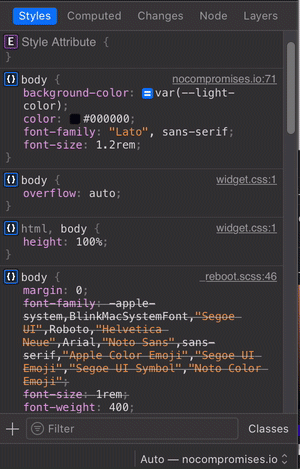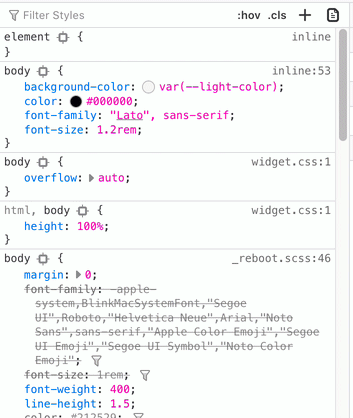Daniel Barenboim - A Musician's Life And Contributions
Daniel Barenboim, a person born in Buenos Aires, Argentina, on November 15, 1942, has become a well-known Israeli pianist and a person who directs orchestras. He, you know, gained attention not just for his gifts with sound, but also for his strong attempts to help bring about calm through melodies in the Middle East. It's almost as if his work stretched beyond the notes themselves, truly.
This individual, a celebrated figure in the world of sound, has a story that includes many different roles and places. He is someone who has performed across many styles and with numerous musical groups around the globe. His life, in some respects, shows a path of constant engagement with the art of sound, and very much with its broader implications for human connection.
As a public figure, his accomplishments, the recognition he has received, and even some of the disagreements surrounding him are all part of his widely discussed life. We will, of course, explore his early beginnings, his notable work as a player of the piano, his time leading orchestras, and even some recent news about his health. His journey, apparently, offers much to consider for anyone interested in great musical figures.
Table of Contents
- The Early Life of Daniel Barenboim
- How Did Daniel Barenboim Shape His Piano Artistry?
- What Makes Daniel Barenboim a Distinguished Conductor?
- Why Is Daniel Barenboim Known for Peace Efforts?
- What Are the Latest Updates on Daniel Barenboim's Health?
- Awards and Recognitions for Daniel Barenboim
- Exploring Daniel Barenboim's Musical Influence
- The Enduring Legacy of Daniel Barenboim
The Early Life of Daniel Barenboim
Daniel Barenboim first saw the light of day on November 15, 1942, in Buenos Aires, Argentina. His parents, both professional piano players, played a big part in his initial exposure to sound. His father, Enrique Barenboim, was a third-generation Russian Ashkenazi Jewish immigrant, while his mother, Aida Schuster, was from Argentina. So, he had roots connecting him to different places, which is quite interesting.
He began his piano lessons at a very young age, starting at five years old. His first teachers were his mother, and then his father took over the instruction. This early home training, you know, laid the groundwork for what would become a truly remarkable career. His first public performance, a rather significant step for a young musician, happened when he was just seven years old, in August of 1950, right there in Buenos Aires. That, in a way, marked the beginning of his public life as a performer.
As a young person, Daniel Barenboim also pursued formal studies at several well-regarded institutions. He attended the Mozarteum University in Salzburg, the Accademia Musicale Chigiana, and the Accademia Nazionale di Santa Cecilia. These places, basically, helped shape his formal musical education. He was, apparently, a very dedicated student, absorbing all he could from these learning environments. His background is a mix of family guidance and structured academic pursuit, which is pretty common for people who achieve so much.
Personal Details of Daniel Barenboim
| Detail | Information |
|---|---|
| Full Name | Daniel Barenboim |
| Date of Birth | November 15, 1942 |
| Place of Birth | Buenos Aires, Argentina |
| Age (as of 2024) | 82 years old |
| Citizenships | Argentina, Israel, Spain, Palestinian Authority |
| Parents | Enrique Barenboim (father), Aida Schuster (mother) |
| Grandparents | Russian Ashkenazi Jews (paternal) |
| Known For | Pianist, Conductor, Composer, Music Artist, Writer |
| Notable Works | Interpretations of Mozart and Beethoven, Wagner's Ring Cycle, Dvořák's Humoresque No. 7 |
| Current Residence | Berlin |
How Did Daniel Barenboim Shape His Piano Artistry?
As a person who plays the piano, Daniel Barenboim earned much admiration for the distinct way he interpreted the compositions of Mozart and Beethoven. His approach to these composers, in some respects, set him apart. He brought a particular depth and feeling to their works, which really connected with listeners. It's like he had a special connection to the notes and the spirit of the music, you know?
His early performances showed a remarkable talent. For instance, an eleven-year-old Daniel Barenboim appeared with the composer Eithan Lustig and the Gardner Youth Orchestra in 1953. This kind of early exposure, very much, helped him develop his public presence and refine his abilities. He wasn't just playing the notes; he was, apparently, already bringing something unique to the sound.
He has also continued to present significant piano works throughout his career. For example, he performed a cycle of Beethoven sonatas at the Teatro Colón in Buenos Aires. This kind of extensive engagement with a composer's entire body of work for the piano shows a deep commitment to the art form. It's pretty clear he puts a lot into his performances, giving them a special feel.
Daniel Barenboim's Interpretive Gifts
Daniel Barenboim's skill as a piano player was, you know, especially praised for his thoughtful renditions of pieces by Mozart and Beethoven. People truly admired how he made these well-known works feel fresh and deeply personal. He had a way of bringing out the inner voice of the music, almost as if he was having a conversation with the composer through the keys.
His ability to connect with the emotional core of these compositions made his performances stand out. He didn't just play the notes; he expressed the stories and feelings within them. This focus on artistic interpretation, in a way, became a signature of his piano playing. It's something that, quite honestly, makes people want to listen again and again. His approach shows a deep respect for the original creations, yet with his own touch.
One of his more recent releases, for example, on Deutsche Grammophon, features his interpretation of Dvořák’s Humoresque No. 7. This track, part of DG’s “Musical Moments” series, reached the top spot on Amazon’s fresh classical playlist. This shows, you know, his continued ability to capture the public's attention and deliver recordings that resonate with a wide audience, even after so many years. He still has that touch, apparently.
What Makes Daniel Barenboim a Distinguished Conductor?
Daniel Barenboim, initially gaining fame as a piano player, is now just as widely recognized for his work leading orchestras. This shift, or rather, this expansion of his public persona, shows his remarkable versatility. He didn't just stay in one area of musical expression; he broadened his reach to guide large musical groups, which is a very different skill set. It's like he just kept adding to his talents, you know?
He has, for instance, led the Staatsoper Berlin in many significant performances. This includes three sold-out Ring cycles in Japan, which is a pretty big undertaking. He also conducted a Wagner marathon at the Staatsoper Berlin, which involved two complete cycles of the composer’s ten major operas. These are massive projects, requiring great skill and endurance from the person at the front. It shows, too, his deep commitment to complex and lengthy works.
His work as a conductor has placed him among the leading figures of our time. He is known for his ability to challenge those who listen to him, encouraging them to take a deeper interest in music. This goes beyond just directing the musicians; it involves creating an experience for the audience that draws them in. He has, apparently, a way of making people truly listen, which is a rare gift.
Daniel Barenboim's Orchestral Leadership
The leadership of Daniel Barenboim over orchestras is a significant part of his musical story. He has guided many different groups of musicians around the world, performing in various styles. His presence at the front of an orchestra, you know, is quite impactful, shaping the sound and direction of the performance. He has, in a way, become a master of guiding large ensembles, which is a very demanding role.
He has, for example, been the General Music Director of the Berlin State Opera, a position of considerable influence. Even after stepping down from that role, he planned to fulfill as many of his professional commitments as possible. This shows a continuing dedication to his work with orchestras, regardless of official titles. It’s clear, too, that he holds a deep connection to the groups he leads.
His performances with the Staatsoper Berlin, like the Wagner marathon, really highlight his skill in leading complex and extensive musical works. These kinds of undertakings require not just musical knowledge, but also a deep understanding of how to work with many people to create a unified sound. He has, apparently, a unique ability to bring out the best in the musicians he directs, which is a hallmark of truly great leadership in music.
Why Is Daniel Barenboim Known for Peace Efforts?
Beyond his musical skills, Daniel Barenboim is recognized for his strong attempts to help bring about calm through melodies in the Middle East. This aspect of his life, in some respects, sets him apart from many other musicians. He has used his platform and his art to address very real-world issues, which is quite admirable. It’s not just about the notes; it’s about what the notes can achieve in the wider world, you know?
He holds citizenship in Argentina, Israel, Spain, and the Palestinian Authority. This multi-citizenship, basically, shows his broad connections and his personal investment in different regions, including those often in conflict. It gives him a unique perspective and, perhaps, a deeper motivation for his work towards peace. He has, apparently, a personal stake in seeing harmony in places that have known much strife.
His efforts in this area are described as "bold," suggesting they are not always easy or without challenge. He has, in a way, put himself out there, using music as a tool for bridge-building and communication where other methods might fail. This commitment to using his gifts for something beyond entertainment is a significant part of his public image. It's a testament to his belief that sound can truly make a difference in people's lives and relationships.
Daniel Barenboim's Vision for Harmony
Daniel Barenboim's vision for harmony, especially in the Middle East, is a defining characteristic of his life and work. He has consistently used music as a way to encourage connection and mutual respect among different groups. This isn't just a casual interest; it's a deep-seated commitment that has shaped many of his activities. He sees, you know, the power of shared artistic experience to overcome differences.
His efforts are rooted in the idea that music can create a space where people from different backgrounds can come together and appreciate something beautiful. This common ground, in some respects, can then lead to broader forms of understanding. He has, apparently, a strong belief in the idea that artistic expression can be a pathway to greater peace, which is a very hopeful message.
This commitment to peace through music is very much a part of his overall contribution to the world. It shows that he views his role as a musician as extending beyond the concert hall. He is, basically, a person who tries to make the world a better place through the universal language of sound. It's a powerful idea, really, that art can serve such a high purpose.
What Are the Latest Updates on Daniel Barenboim's Health?
Conductor Daniel Barenboim has shared that he has received a diagnosis of Parkinson’s disease. This news, you know, has naturally brought attention to his health. It's a significant personal update for someone who has maintained such an active public career for many years. He has, apparently, been open about this personal challenge, which is quite brave.
Since 2022, he has appeared somewhat more fragile. This has led to the cancellation of some scheduled performances. For example, a new production of Wagner’s Ring Cycle in Berlin, which he was set to lead, had to be called off. These cancellations, in a way, reflect the impact of his health condition on his ability to maintain a demanding schedule of public appearances. It's a reminder, too, that even great artists face personal difficulties.
Despite this, he has expressed his intention to fulfill as many professional commitments as he can. This shows a continuing determination to engage with his work, even in the face of health challenges. His resilience, basically, shines through in his desire to keep creating and performing. It's pretty clear he remains deeply committed to his musical life, which is inspiring.
Recent Appearances and Daniel Barenboim
Recent appearances by Daniel Barenboim have, you know, reflected the changes in his health. Since 2022, he has seemed a little less robust, leading to the cancellation of certain planned events. These included, for instance, a new presentation of Wagner’s Ring Cycle in Berlin, which is a very large and demanding set of performances. It's a clear sign, too, of the impact of his recent diagnosis on his public schedule.
Despite these adjustments, he has still managed to release new recordings. His latest Deutsche Grammophon release, for example, features his interpretation of Dvořák’s Humoresque No. 7. This track, part of DG’s “Musical Moments” series, reached the top spot on Amazon’s fresh classical playlist soon after its release. This demonstrates, in a way, his continued ability to produce new work that resonates with listeners, even while managing his health. It shows, apparently, his artistic output remains strong.
He continues to be a figure of great interest to the public, with news about his life and career regularly sought out. People want to know about his upcoming performances, his recordings, and his books. This ongoing public interest, basically, highlights his lasting importance in the musical world. Even with personal challenges, his creative spirit, it seems, remains very much alive.
Awards and Recognitions for Daniel Barenboim
Daniel Barenboim has gathered many honors and forms of recognition throughout his long career. He is a citizen of Argentina, Israel, Spain, and the Palestinian Authority, which itself is a unique collection of national ties. These multiple citizenships, in a way, reflect his broad personal and professional connections across different parts of the world. It's quite unusual, you know, to hold so many.
His achievements in music and beyond are widely acknowledged. He is known as a distinguished pianist and conductor of Jewish Russian descent. His biography often highlights his influences, his collaborations with other artists, and the many awards he has received. These recognitions, basically, underscore his standing as one of the most important musical figures of his time. He has, apparently, made a truly significant mark.
He has also received honorary titles in Berlin, where he currently lives. This kind of local recognition, in addition to his global fame, shows how deeply he has connected with the places he has worked and lived. He is, in some respects, a truly international figure, yet also deeply embedded in specific cultural centers. It’s pretty clear he is held in high regard wherever he goes.
Exploring Daniel Barenboim's Musical Influence
As one of the leading conductors and pianists of our current time, Daniel Barenboim is widely known for his ability to encourage those who listen to him to take a very strong interest in music. He has a particular way of presenting works that seems to make people lean in and truly engage. This quality, in a way, goes beyond mere performance; it's about fostering a deeper connection to the art form. He, you know, really wants people to care about what they hear.
He has, for instance, worked with other musical figures, like the composer Eithan Lustig, as early as 1953. These collaborations, basically, show his long history of engaging with other creative minds. His influence extends not just to his own playing or conducting, but also to the broader musical community through these partnerships. It's clear, too, that he has been a part of many different musical conversations over the years.
There is perhaps no other composer in history who sought to combine such obviously incompatible elements in his works, and Barenboim has a particular way of approaching such complexities. The qualities that make his supporters so enthusiastic are often the same ones that might push others away, such as his tendency toward extremes in every compositional aspect. He, apparently, embraces these challenging aspects of music, which makes his interpretations quite compelling, in some respects.
The Enduring Legacy of Daniel Barenboim
Daniel Barenboim's enduring legacy comes from his dual roles as a celebrated pianist and a respected conductor. He has performed in many different musical styles and with orchestras across the globe. His artistic interpretations of works by Mozart and Beethoven, for example, have been particularly admired, showing his deep understanding of these composers. He, you know, brought a special touch to their music.
His efforts to promote peace through music in the Middle East also form a significant part of his story. This bold work, using sound to bridge divides, highlights his commitment to broader societal issues beyond the concert hall. His multi-citizenship, including that of the Palestinian Authority, further underscores his personal investment in these regions. It’s pretty clear he cares deeply about human connection.
Despite recent health challenges, including a Parkinson’s disease diagnosis, he continues to be active, releasing new recordings and planning to fulfill professional duties. His life, basically, is a testament to a long and impactful career, marked by musical excellence, a commitment to peace, and a continuous engagement with the art form. He has, apparently, left a very significant mark on the world of sound and beyond.
- Husker Volleyball Schedule
- Uncle Buck Cast
- Vintage Stock
- Barcelona Vs Milan
- Corte De Pelo Para Ni%C3%B1os

Seeing Calculated Values of CSS Variables in Browsers | Aaron Saray

Seeing Calculated Values of CSS Variables in Browsers | Aaron Saray

Steps to Register for the IELTS at British Council | Nurseonlineph